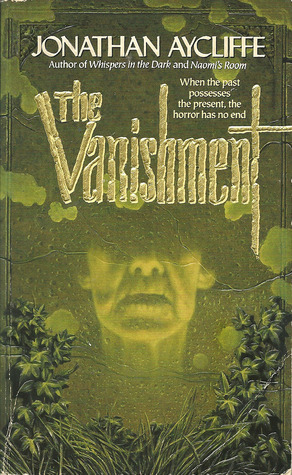 By JONATHAN AYCLIFFE (Harper; 1994)
By JONATHAN AYCLIFFE (Harper; 1994)
Fans of England’s Jonathan Aycliffe (a.k.a. Daniel Easterman) rate this 1994 novel among his finest work. That may well be true (I haven’t read enough Aycliffe books to argue that claim), but I’ll confess I’m not entirely sold on THE VANISHMENT. It’s well written, certainly, and quite compelling in its way, but those things don’t obscure the fact that the narrative is a mess of clichés.
The novel’s overriding conceit, for starters, is hardly original (and was utilized in another 1994 publication, Brooke Stevens’ THE CIRCUS OF THE EARTH AND THE AIR). It posits that the protagonist’s wife Sarah inexplicably disappears one day, and that said protagonist, the semi-successful writer Peter Clare, can find no rational explanation for Sarah’s “vanishment.”
The vanishment seems to have something to do with the creepy cliff-top house Peter and his wife have (stupidly) moved into. That the place is haunted is evident from the start, and that idea is strengthened as Peter learns about the previous inhabitants, who included a supremely unpleasant woman whose spirit still seems to reside therein.
Like most horror novel ghosts, this one is itching to possess the body of a little girl. The unfortunate repository of that possession is Rachel, the four year old daughter of one of Peter’s friends. No, the possession doesn’t result in any swearing or bad behavior on the part of Rachel, as Aycliffe is resolutely subdued and suggestive in his approach (which is closer in spirit to Ramsey Campbell’s THE INFLUENCE than THE EXORCIST). This fact, however, doesn’t change the fact that everything in THE VANISHMENT has been done before.
To be sure, the presence of clichés doesn’t automatically invalidate THE VANISHMENT. Quite a few great horror novels are constructed entirely from spare parts of others (the works of Peter Straub, whose early novels this one often recalls, come to mind). What this novel fails to do is corral its clichés into a satisfying whole, despite its talented author’s best efforts.
